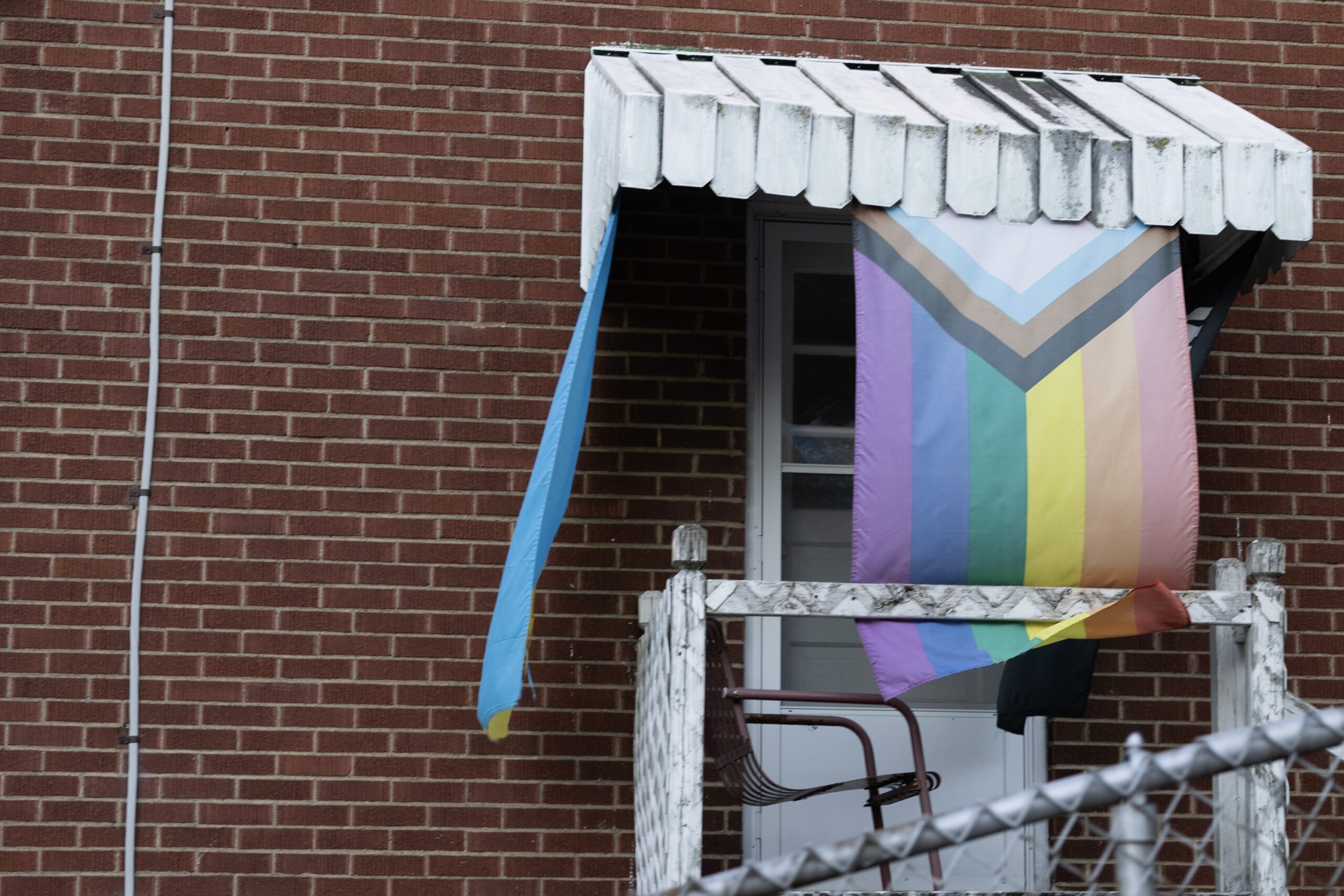Pittsburgh Analyzes Housing Issues Impacting LGBTQ+ Rights
Housing Issues and LGBTQ+ Rights in Pittsburgh: An In-Depth Look
When we talk about community, safety, and rights, housing ranks right up there as one of the biggest pillars. In Pittsburgh, the intersection of housing issues and LGBTQ+ rights has become a hot topic of conversation. Why? Because the home is where we live, grow, and love, and when that space is threatened, so too are the rights and identities of those who inhabit it. Let’s dive deep into Pittsburgh’s vibrant culture, the barriers its LGBTQ+ community faces in finding secure housing, and what it all means for the future.
Understanding the Landscape of LGBTQ+ Housing Issues
The LGBTQ+ community has always been an integral part of Pittsburgh’s identity. Over the years, though, many have faced discrimination, harassment, and systemic bias, especially when it comes to securing affordable and safe housing. Whether it’s a young queer person trying to escape an unsupportive home environment or a transgender individual battling prejudice from landlords, the challenges are real and pressing.
The Statistics Speak Volumes
Before we delve deeper, let’s check out some critical stats that highlight the situation:
- 28% of LGBTQ+ individuals have faced discrimination while searching for housing.
- 40% of homeless youth identify as LGBTQ+, according to the Williams Institute.
- LGBTQ+ people of color are disproportionately affected by housing instability.
These figures aren’t just numbers; they represent human lives, aspirations, and dreams cut short or put on pause due to societal barriers.
The City’s Response to Housing Inequality
Recognizing the need for change, Pittsburgh is undertaking a comprehensive study focused on housing issues that directly impact LGBTQ+ residents. The goal is clear: to craft policies and initiatives that bridge gaps in access, ensure safe environments, and promote equitable housing options for all individuals, regardless of their sexual orientation or gender identity.
Why Now? The Urgency of the Matter
So, what’s sparked this initiative? Well, the surge in hate crimes, coupled with increased attention to LGBTQ+ rights nationwide, has made it impossible to overlook the fact that housing discrimination often leads to other forms of marginalization. When a community feels unsafe in its living conditions, it can lead to adverse health outcomes, economic instability, and a ripple effect on local culture and identity.
Let’s paint a picture: imagine living in a city that you love, surrounded by friends and community, yet every time you step into your home, the very foundation of your safety feels shaky. That’s the emotional toll that housing instability takes.
Key Issues Facing the LGBTQ+ Community in Pittsburgh Housing
Let’s break down some primary housing issues that the LGBTQ+ community contends with in Pittsburgh.
1. Discrimination from Landlords
Imagine having a great job, being ready to sign a lease, and then getting ghosted or straight-up rejected once your landlord discovers your sexual orientation or gender identity. It’s a story far too familiar for many LGBTQ+ individuals. Discriminatory practices, whether overt or covert, can lead to long-lasting impacts on mental health and self-worth.
2. Affordability Challenges
Finding a place to call home isn’t just about fitting in; it’s also about affordability. For many LGBTQ+ folks, especially those who are also part of marginalized racial or ethnic groups, the financial burden can be overwhelming. The cost of living in Pittsburgh has skyrocketed, making it harder for low-income LGBTQ+ individuals to secure safe and stable housing.
3. Support Systems
While many cities have community organizations dedicated to helping LGBTQ+ individuals find housing, Pittsburgh is in a unique position. The support might not always be robust enough to meet the demand. Local initiatives and initiatives can make a difference, but gaps in services still exist.
4. Safe Spaces for Transgender People
One of the essentially tragic realities of today’s world is that many transgender individuals often face violence and discrimination when searching for housing. Creating safe spaces where these individuals can live freely without fear is not just an aspiration but a necessity.
5. The Role of Community Organizations
Several organizations in Pittsburgh have made it their mission to advocate for equitable housing policies. Groups like The LGBTQ+ Community Center and You Can Queer It! (YQCI) are at the forefront of the battle, providing resources, support, and advocacy to ensure that LGBTQ+ residents are treated with dignity and respect.
Steps Pittsburgh is Taking Toward Change
So, what is the city doing to address these pressing issues?
Conducting Research and Surveys
To create impactful policies, Pittsburgh is first getting its facts straight. By conducting surveys and gathering data specifically about LGBTQ+ housing experiences, local leaders can better understand the scope of the challenges faced. This research informs policy direction and resource allocation.
Community Engagement
It’s crucial for the city to involve LGBTQ+ voices in the conversation about housing. By hosting public forums, town halls, and focus groups, officials can hear firsthand stories of struggles and triumphs from community members. This engagement ensures that any proposed initiatives are both relevant and effective.
Awareness Campaigns
Raising awareness about housing discrimination within and outside the LGBTQ+ community is vital. By educating the public and landlords about LGBTQ+ rights, the hope is to foster a culture of inclusivity and respect. Outreach programs can dispel myths and lead to smoother interactions between landlords and tenants.
Creating More Affordable Housing
Pittsburgh is also looking to create more affordable housing options. This means tying in social equality with housing development. City planners are urged to consider the needs of the LGBTQ+ community while developing new housing projects.
What Lies Ahead
The road to housing equality for LGBTQ+ individuals in Pittsburgh is a challenging one, but it’s not without hope. With the city’s commitment to addressing these issues, it’s clear that change is on the horizon. Yet we all must remain vigilant.
As community members, our voices can shape the policies that affect all of us.
The Importance of Allies
If you’re reading this and you’re not part of the LGBTQ+ community, you might be wondering how you can help.
Well, that’s a fantastic question! Being an ally means standing up against discrimination, educating yourself about the issues the community faces, and advocating for change. It can be as simple as using your platform to raise awareness, supporting local LGBTQ+ businesses, or volunteering your time to organizations working toward housing justice.
Conclusion
The intersection between housing issues and LGBTQ+ rights is a profound one. In Pittsburgh, these concerns highlight larger societal dynamics that warrant our attention and action. As we work together to advocate for safe, affordable housing for all, we must remember—every person deserves a place they call home, one that embraces their identity and allows them to flourish freely. It’s a journey worth taking, with potential repercussions that can shape the community for generations. Together, let’s build a Pittsburgh that celebrates diversity, ensures equality in housing, and champions the rights of everyone.
FAQs
- What are the main housing issues faced by LGBTQ+ individuals in Pittsburgh?
LGBTQ+ individuals often face discrimination from landlords, affordability challenges, and a lack of support systems tailored to their specific needs. - How is Pittsburgh addressing these housing issues?
Pittsburgh is conducting research, engaging the community, and promoting awareness about housing discrimination to create a more inclusive and equitable environment for all residents. - Why is affordable housing important for the LGBTQ+ community?
Affordable housing is crucial to prevent homelessness, especially given that many LGBTQ+ individuals experience financial instability due to discrimination and job loss. - What can allies do to support LGBTQ+ housing rights in Pittsburgh?
Allies can educate themselves and others, support local LGBTQ+ organizations, and advocate for policies that promote equitable housing practices. - What resources are available for LGBTQ+ individuals seeking housing support in Pittsburgh?
Organizations like The LGBTQ+ Community Center and You Can Queer It! provide resources and support in navigating housing challenges.







